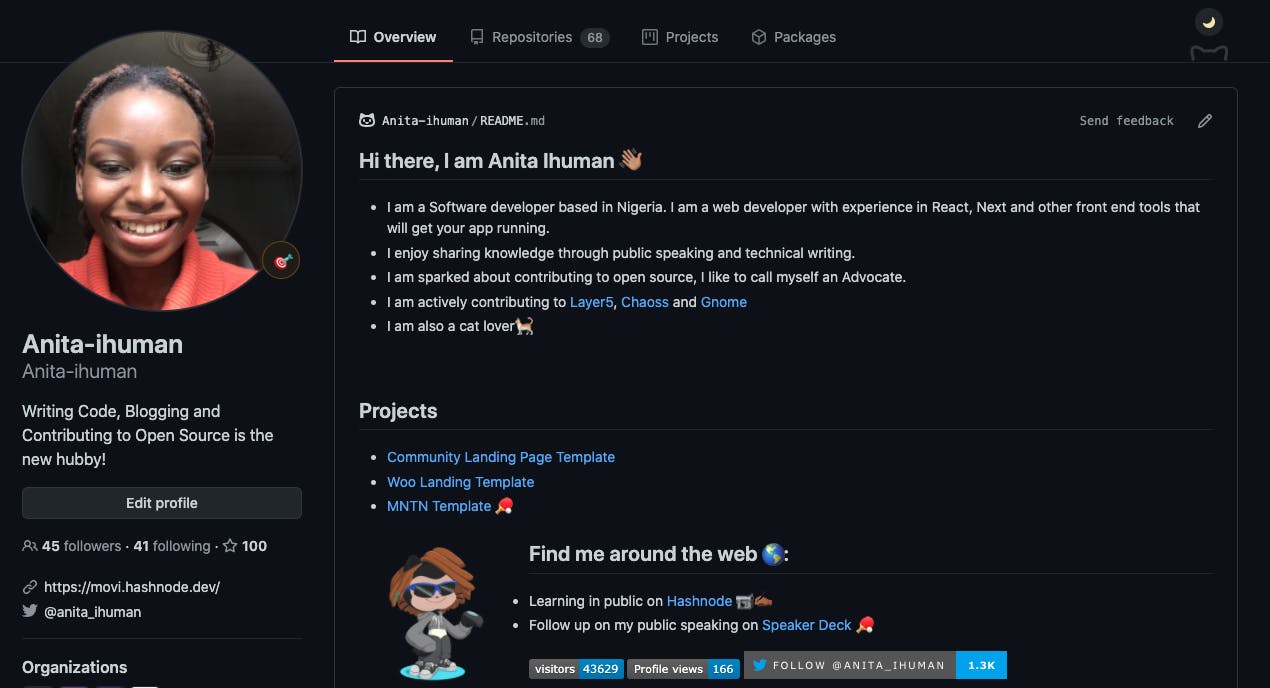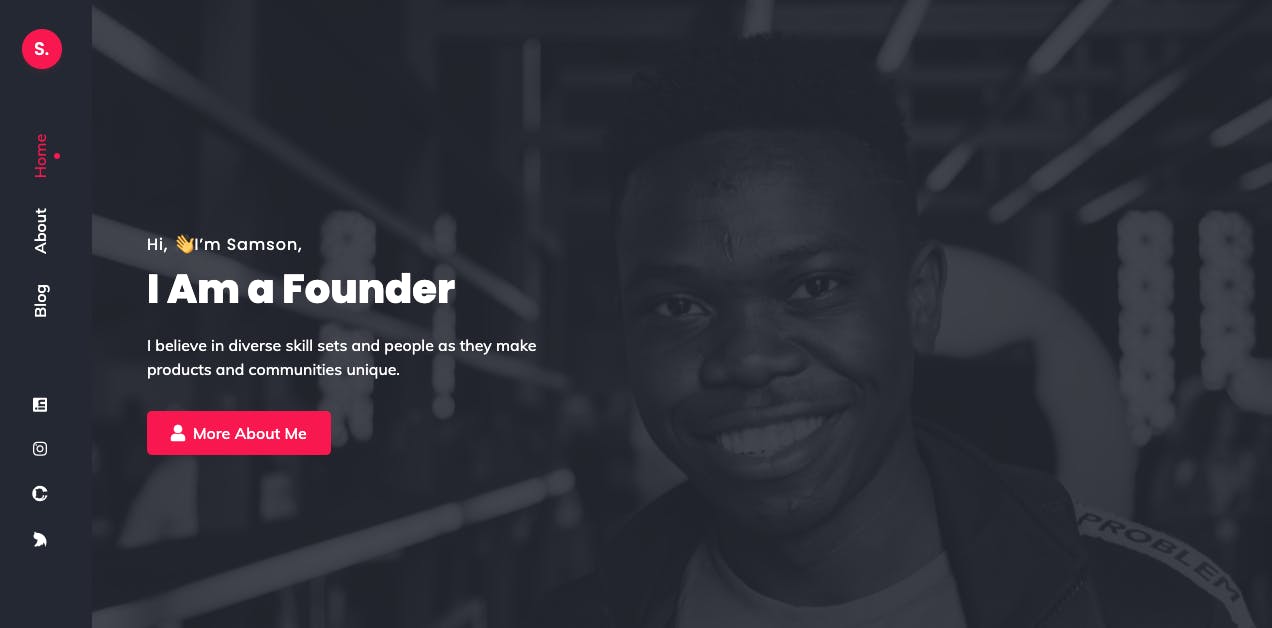Notice that just the mention of names like Jeff Bezos – Amazon.com or Jack Dorsey – Twitter.com, evokes strong emotions! You might even be able to immediately sum up their work and personality in a few words because they have a strong personal brand. A strong personal brand should be widely recognized and consistent. We will walk through the steps to building a strong Personal Brand.
Personal Branding is all about your unique promise of value and what you bring to the table. It’s (also) about getting your potential clients to choose you as the only solution to their problem. – Dr Sarah David
When it comes to Branding, It is not just companies that should prioritize branding, an individual too can also establish a personal brand. Personal branding basically involves putting yourself out there in a particular way in order to help promote yourself better
Benefits of personal branding
- Recognizability: A Personal Brand gives you an identity in public places. People get to know you for what you do and the impact you have made community, and this establishes what you want people to think of when they see you or your work
- Builds your network: Once people begin to notice your effort, your connections will increase and you will get to know more people in that particular field.
- Paves way for opportunities: When people like your work and projects and get a sense of what you can offer, they might reach out to you to offer opportunities.
- Raises your credibility in the industry: Once you have built your personal brand have consistent branding across all social media platforms, people can easily identify you and refer you. This will raise your credibility in the industry.
- Inspires others: Your goals when building your personal brand should be to make a notable impact in your area of specialization. Such that you will be a source of inspiration to other people in the community.
Now let’s jump into a few ways to build and improve your brand as a Programmer.
Steps to building a personal brand.
1. Figure out who you are.
To create a brand that accurately reflects your personal and professional identity, you need to discover who you are. You can do that by crafting a list of your personal strengths and weaknesses. Ask yourself:
- Which areas of work do I excel in?
- What motivates you?
- What characteristics have others complimented you on?
- What technical skills do you want to highlight?
- How do you want to be seen by others?
2. Define your Audience.
Before you start your personal branding, you need to determine who you are trying to reach. That is, you need to know your target audience. Are they Startup companies, Large companies, or are you searching for freelancing jobs?. The sooner you define the audience, the easier it will be for you to identify a niche.
3. Find a Niche
In the tech industry, there are different areas you can specialize in, such as Front-end development, Back-end development, UI/UX, Cybersecurity, Data Science, Machine Learning, and so much more. It is important to be specialized in a particular field so you can continue to develop your expertise in that field over time. The more focused your brand is, the easier it is for people to identify you are and what you do. It’s much easier to get recognized in a field if you consistently create content and focus your brand around it.
4. Grow your Online Presence
When creating your profile, ensure that each account you create has consistent details about you and what you do. That is, the same name, username, same skills, and the details in the bio should be the same for better SEO(Search Engine Optimization). These are social media platforms you can share your brand details:
Twitter: Twitter is the social network of choice for developers. Leverage this platform to highlight and build upon your industry expertise and network. When you publish an article on your blog or upload a video on Youtube — Tweet about it with the right hashtags for more engagements. It might seem like no one is noticing, but keep on at it.
LinkedIn: LinkedIn serves as a professional social media tool for networking, job searching and recruiting nowadays, this makes it a great tool for personal branding. In other to completely fill in your profile, you should provide:
=> Professional headshot for your profile picture.
=> About / Bio
=> Job Experience (both present and past)
=> Education, licenses, and certifications
=> Volunteer experience
=>Skills
GitHub: While Designers have Behance and Dribbble, Developers have GitHub. You can create a Github Readme profile which will include all relevant information about you: ie, your photo, your website URL, your bio, your current company, your projects, skills, and any other detail you would like the public to see as regards to your experience.

You can also grow your online presence by:
- Sharing your Content: Content sharing goes a long way in building your brand. It shows that you want to help others learn new things from the content you share. The content you share could be a reflection of the new things you learn at each step. You can share your content by starting a YouTube channel to share video content, creating a podcast, doing live-coding streams, and so on.
- Blogging: Blogging is a great way to increase your credibility in a particular field. When blogging, Keep your message and content consistent to one niche to become memorable within that target field. Post your content on Blogging sites that are in line with your nitch eg. Hashnode & Medium Develop a Blog style guide for your blog, this will help you consistently produce contents of high quality for your blog. For example, check out bloggers like: [Victoria Lo, Catalin's Tech & Edidiong Asikpo that have branded their blogs.

- Attending Meetup Groups and public speaking: Always make yourself available to participate and engage in conferences and meetup groups that talk about subjects closely related to your career and goals. These gatherings help you grow and connect with people.
5. Embrace networking:
While you are going about building a personal brand, it’s important to network regularly (and effectively) to grow your professional circle. Connecting with peers and industry leader by either going to formal or informal networking events, paves way for you to offer value you can provide with your skills this makes it more likely for your personal brand to be recognized. With the network you build fr yourself, it will be easy to get recommendations when opportunities come.
6. Personal website:
Create an SEO optimized portfolio that showcases projects that you've worked on, books you’ve written, important events you’ve volunteered at or videos of your talks all and a downloadable resume curated on this website making them easily accessible. If you can, do well to include a section with references from your past clients and/or bosses.

7. Remember that your personal brand isn’t just online:
Your personal brand should follow you everywhere you go, see it as your reputation. Therefore, the story you tell, combined with what your connections say about you in everyday interactions should align with your Personal Brand.
Factors of a Strong Personal Brand
Consistency:
Brands like Mark Zuckerberg: Facebook Co-Founder, Elon Musk: The Spaceman and so many others did not become a brand overnight, it took years of consistency to build brand identities like these. Since we're trying to build a cohesive professional presence online, your photo, name, brand colour, goals and skills should be consistent across platforms, like your portfolio, Twitter, GitHub and LinkedIn profile. For example, using the same photo of yourself everywhere can help recruiters identify you across platforms.Commitment:
Whatever your area of specialization might be, you need to be committed to growing it and helping the community you are in grow, by helping to answer questions on (StackOverflow, Slack channels and Twitter), hosting meetups, fixing the issue on GitHub etc.Intentional:
While you are making efforts to achieve a strong personal brand, remember that your brand is more than just an online persona, but it is a representation of who you are. So you have to make it a habit to volunteer for projects, and assert yourself as a leader when the need be.Transparency:
When you maintain a consistent public profile, You build trust amongst recruiters who come across your social media handles.
Conclusion
Your personal brand is an essential way to demonstrate your value as a Programmer. Whatever your brand is, make sure that it’s specific, clear, and above all, consistent in all of your work.
